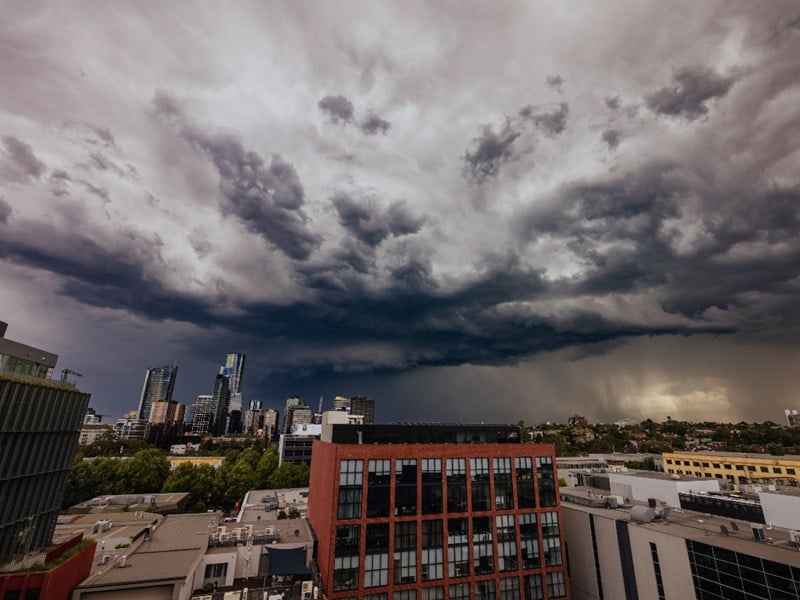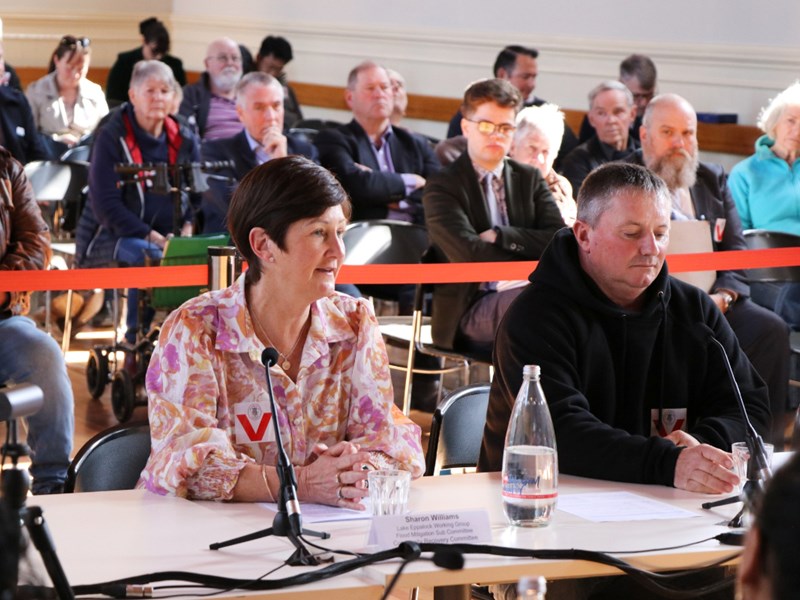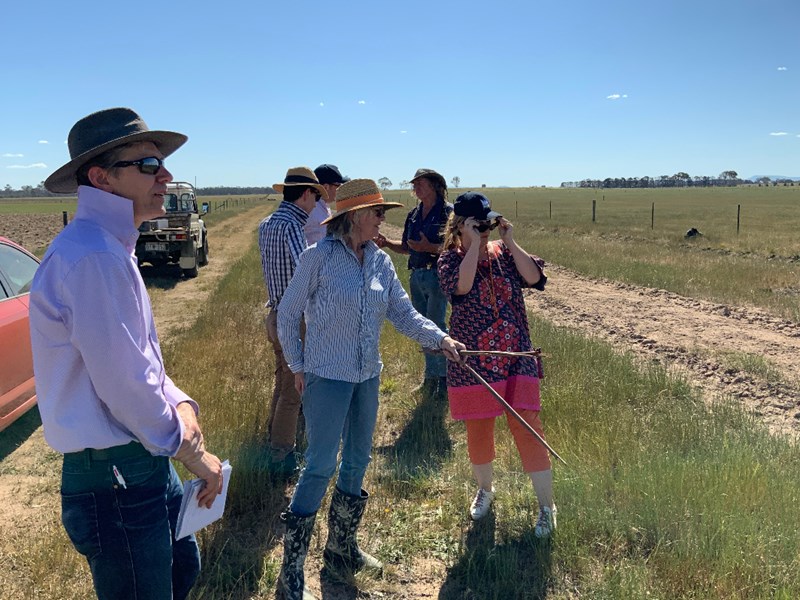- Home /
- News /
- Environment
Climate for change
6 November 2024

From Mallacoota to Mildura, Victorians inhabit a piece of country long revered as a cradle of abundance, but as warnings of irreversible environmental change mount, so do calls for greater protection of the rich diversity found within the Garden State.
Drought, floods and fires have all severely tested the capacity of communities to respond and adapt. They have also led Parliament to investigate solutions that will address current and future needs.
Environment and Planning Committees formed in both the Legislative Assembly and Legislative Council have separately conducted inquiries focused on various environmental challenges facing the state.
Most recently, the Legislative Council committee has presented a range of recommendations responding to the October 2022 floods that devastated several Victorian communities. It is now investigating Victoria’s resilience to the impacts of climate change.
When undertaking their work, committees reach their conclusions through hearing submissions from the public and experts. Chair of the Legislative Council committee Ryan Batchelor said contact with the public is essential for the committee to make its findings.
‘I think a really important part of the committee process, particularly for a natural disaster such as the floods, is to ensure that those affected have a voice and that their voice is amplified and that their experience is both recognised and heard from,’ he said.
‘We did that by going out and having hearings in regional Victoria, we did online sessions and site visits.’

However, Batchelor said it’s ‘not our job to tell a story, it’s to change policy’. Through assessing each submission and the points of view presented, the committee collectively decides what can be learnt from the lived experience of people in various parts of Victoria.
‘It’s picking out the policy lessons from the experiences we’ve been told and to advise government on how things could be better in the future,’ he said.
‘Sometimes you’ve got to weigh up what is the best thing to do if competing interests are at stake. What’s good for someone individually might have other impacts on other people who haven’t been part of the process.’
To ensure accurate findings, Batchelor said the committee systematically and carefully accounts for the diverse environments within the state and the variety of submissions it receives.
The committee’s current inquiry on climate resilience is seeking to understand and address the main risks posed to Victoria's built environment and infrastructure by climate change.
‘Climate change is an undeniable reality, and its impacts on our built environment and infrastructure require our urgent attention,’ Batchelor said.
In an earlier inquiry, the Legislative Assembly’s Environment and Planning Committee investigated ways Victorian communities are tackling climate change. The report highlighted changes Victorians were witnessing in the environment and the contributing factors to Victoria’s greenhouse emissions.
The committee indicated that working towards a zero emissions economy ‘will not be equally shared among Victorian communities’.
This imbalance of responsibilities has caused some contention among Victorians towards renewable energy projects and emission controls.

For Ovens Valley MP Tim McCurdy, who was a member of the environment committee during its climate change inquiry, regional voices are paramount.
‘Farmers and regional communities are not anti-renewable,’ he said. ‘They are merely seeking to engage in a dialogue that will result in better outcomes that suit the communities’ characteristics and will benefit them, not take their land for no community or agricultural benefit.’
McCurdy said that regional communities need to feel a part of the climate action process and that those affected by the recommendations should be sought out.
‘It is very easy for the discussion to revolve around the impacts in metropolitan regions, but at the same time we must represent the whole of Victoria, including those in the regions who are often required to do the heavy lifting.’
One of the recommendations in the tackling climate change report suggested the Victorian Government strengthen its approach to community engagement under the Climate Change Act 2017. That proposal was fully supported by the government in its response to the report.
‘The most important factor is that we hear a mix of both expert opinion as well as anecdotal evidence,’ McCurdy said.
‘A debate should be wide-ranging and help to formulate policy and opinion, however in order to achieve that it needs to feature the voices of those that will be impacted by the outcomes of the debate.’
Ryan Batchelor said a lot of the committee’s time is spent ensuring the report is true to the consensus of the committee’s members and that all voices have been heard.
‘It’s not something you can rush,’ he said, with time spent on determining the structure and key themes, while also ensuring all the issues are covered.
Batchelor noted that over many years debating climate change, the discussion has approached acceptance and now revolves around what action will be taken.
‘I think there is a greater acceptance now that climate change is real, and we are seeing the effects of it. I think it’s less of a debate about whether it’s real and more of a debate about what are we going to do about it now.’
With that acceptance comes an understanding that legislation will need to become adaptive and responsive to environmental change.
‘Particularly with the October 2022 floods, this is what happens when the climate changes. I’m not a meteorologist or environmental scientist, but the intensification of weather events is being driven by climatic changes,’ Batchelor said.
‘This really is an adaptation question. How are we adapting to this new reality, because we’re going to be living with it.
‘I hope the legacy of the committee is that big strategic planning takes account of climate change.’
About the Author

Matthew Parkhill
A participant in the Parliament Express program conducted by the Parliament of Victoria in partnership with Express Media. The program provided mentoring and engagement experiences, leading to a series of articles written by young Victorians for the Victorian Parliament's website.